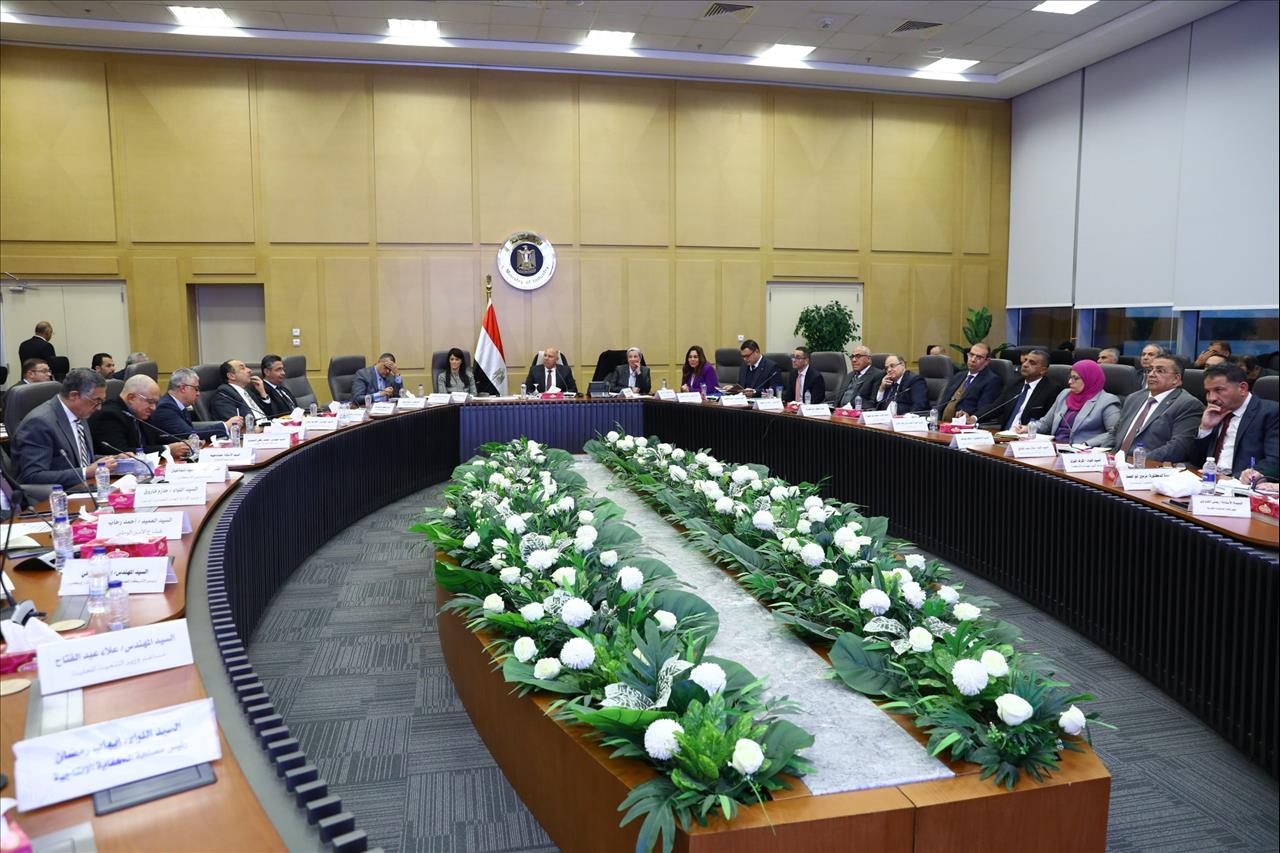
Cabinet Addresses Key Manufacturing Challenges, Economic Growth Initiatives
Manufacturers from the 10th of Ramadan Industrial Zone raised concerns regarding fluctuating electricity supply, prompting the minister to emphasize the critical need for regular maintenance of electrical panels within factories. Al-Wazir issued a directive for the inclusion of electricity ministry officials in each industrial zone's unified inspection committee, which is led by the Industrial Development Authority (IDA), to ensure the safety of control panels and assess the integrity of electrical networks.
Another issue raised was the export of copper scrap in forms such as ingots or billets to circumvent export bans. The minister stressed that stricter controls would be enforced on copper scrap exports to prioritize its use in local manufacturing. A committee comprising representatives from the Ministry of Industry, the Egyptian Federation of Industries, and other relevant agencies will be formed to address this issue and ensure adherence to the export ban.
In Qalyubeya, 35 manufacturers of dietary supplements expressed concerns about a new decree from the Egyptian Drug Authority regulating the storage and circulation of supplements. The minister directed the formation of a committee involving the IDA, the Egyptian Food Safety Authority, and the Drug Authority to resolve the issue. This committee will work to create a unified regulatory body for the industry, preventing overlapping responsibilities.
An ice and bottled water manufacturer in the Benha investment zone raised concerns about insufficient electricity capacity to operate their factory. Al-Wazir instructed coordination between the General Authority for Investment and Free Zones (GAFI) and the factory to address the electricity issue and ensure compliance with industrial safety standards before the factory is granted an operating license.
The meeting also discussed a complaint from H.M. Dyeing Factory regarding the refusal of customs authorities to release machinery shipments due to a clerical error in shipment numbers. The minister directed the Ministry of Industry to collaborate with the Ministry of Finance to expedite the clearance of the shipment.
Additional concerns were raised about the influx of cheap Chinese imports, including the dumping of stainless steel, aluminum, and household appliances in the Egyptian market. The minister called for the formation of a committee to tackle these issues, enforce stricter import controls, and propose protective measures for the local market.
In response to complaints from residents of Kom Ombo city about environmental pollution from sugar factories using bagasse (sugar cane waste) as an alternative to natural gas, El-Wazir ordered the installation of filters on chimneys to mitigate the environmental impact. The Ministry of Petroleum assured that natural gas would soon be supplied to the Kom Ombo factory, and a study will be conducted on the potential uses of bagasse in industries such as paper, MDF wood, and ethanol.
The meeting also addressed a complaint from the Arab Integrated Industries company regarding delayed payments for streetlight supply in Minya and Assiut, totalling EGP 20m. The minister instructed relevant ministries to ensure swift payment of the company's dues.
The Arab Organization for Industrialization (AOI) presented their contributions to local mobile phone manufacturing in partnership with Talal Abu-Ghazaleh Technology. The AOI has produced several models of tablets, laptops, and mobile phones, with plans to increase local manufacturing and boost the share of locally produced components, such as phone batteries.
Finally, the Ministerial Group for Industrial Development reviewed the Ministry of Planning's economic performance report for Q1 of FY 2024-2025. The report showed that manufacturing industries grew by 7.1%, driven in part by customs release facilitation. Moreover, developmental funding directed to the private sector surpassed government funding for the first time, highlighting the impact of economic reforms and the strengthened role of the private sector in driving economic growth. Government policies focused on fiscal tightening and improving public investment governance have also enabled greater private sector participation, contributing to Egypt's ongoing economic recovery.

Legal Disclaimer:
MENAFN provides the
information “as is” without warranty of any kind. We do not accept
any responsibility or liability for the accuracy, content, images,
videos, licenses, completeness, legality, or reliability of the information
contained in this article. If you have any complaints or copyright
issues related to this article, kindly contact the provider above.


















Comments
No comment